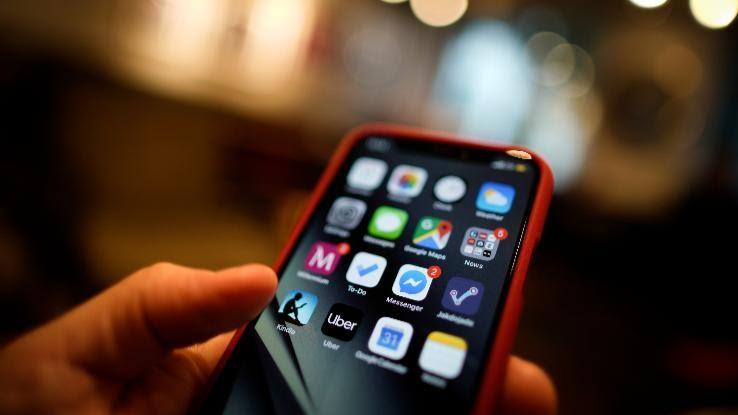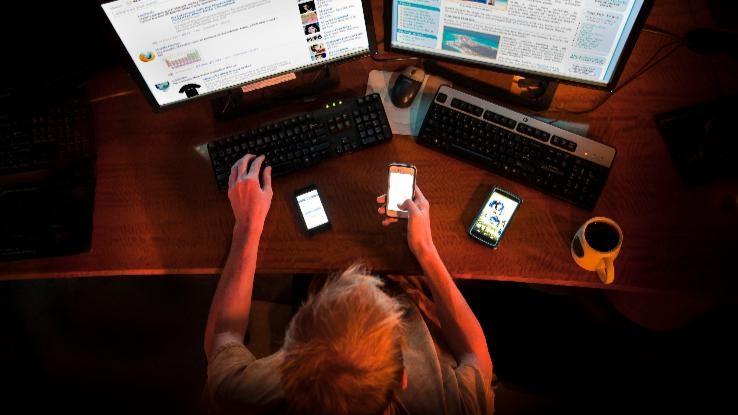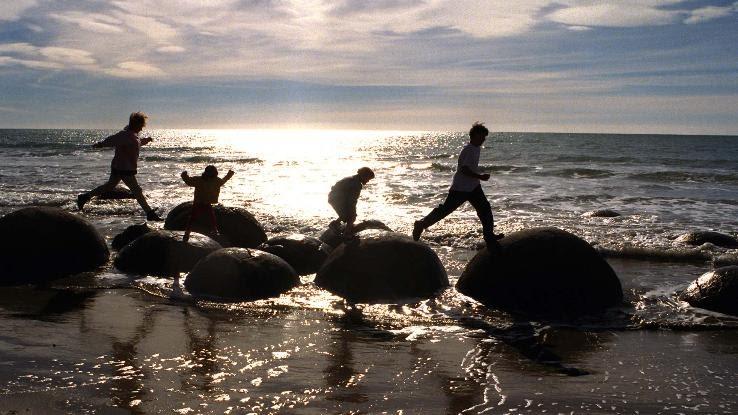
Day in and day out, we take in a lot of upsetting or anxiety-inducing news. For some of us, staying glued to our Twitter feeds or news outlet of choice has become something of an obsession — so much so that there’s a new word to describe that (seemingly) ceaseless compulsion to keep refreshing and devouring all those unsavory news stories. That word? Doomscrolling.
In all likelihood, many of us have been practicing this unhealthy habit of consuming large quantities of negative news without naming it — or, in some cases, without realizing it. But it’s essential that we start taking notice, especially when it comes to safeguarding our health. While doomscrolling has already been linked to experiences of depression and poor heart health, there’s also mountains of evidence to support the idea that long-term stress negatively affects our physical health and mental wellbeing too. However, more often than not, those studies don’t specifically address the stress that stems from social media or smartphone usage — at least not yet.
What Exactly Is Doomscrolling?
At its most basic level, doomscrolling is the act of looking through social media posts or news websites, almost to an obsessive point, while feeling more and more anxious and depressed with every story or update we read. Despite feeling worse and worse as we read more and more, we continue to scroll through anyway, almost as if we’re on a quest to find as much disheartening information as possible. Sometimes called “doomsurfing,” the behavior doesn’t just involve getting caught up in negative stories; it also refers to our tendency to actively seek out negative information instead of positive, feel-good headlines. That’s where the “doom” element comes into play.

There’s an almost-masochistic undertone to doomscrolling — the more we consume bad news, the more likely we are to seek out additional stories that make us feel depressed. And it’s become especially easy to doomscroll in a time of climate dread, the COVID-19 pandemic, highly visible police brutality, and increasing political polarization. With access to doomy news always at our fingertips, breaking the cycle can be very difficult.
Why Do We Doomscroll?
So, what is it about our brains that makes us want to doomscroll? According to Dr. Ken Yeager, a psychiatrist at Ohio State University’s Wexner Medical Center, it has to do with an evolutionary process that possibly once helped us protect ourselves. “We are all hardwired to see the negative and be drawn to the negative because it can harm us physically,” Dr. Yeager explains. This need to seek out dangerous things so we can learn about them once served a very important purpose: It helped us thousands of years ago. It taught our ancestors how to observe and anticipate harmful events so they could better respond to those events — with the end goal of increasing the likelihood of survival.

While most of us no longer need to know the subconsciously recognizable indicators that a tiger might be on the verge of attack or that a wild fruit may be poisonous, that evolutionary relic remains in our brains. There are plenty of modern-day negatives we can seek out to satisfy that mental itch — namely those posts on social media and articles elsewhere online. These sites can give us the “hits” of negativity that our brains are looking for, but they also have a variety of other effects on us.
As researchers delve more deeply into the effects of social media and instant information-sharing networks, they’re beginning to find that these sites and the posts on them have the tendency to divide their users and cause them to feel isolated. In short, our favorite social media apps or sites might be making us feel alone, and that can exacerbate the sadness we feel after reading negative headlines. This phenomenon isn’t relegated to Facebook, Twitter or Instagram; even news sites can make us feel down.
We doomscroll when we have a longing to connect and learn about current events that may address our worries. The behavior often sneaks up on us while we’re attempting to catch up with our social circles or on local and global happenings. That impending feeling of doom and hopelessness can come on strongly after we’ve scrolled past the 20th depressing story about destroyed forests, flooded homes or corrupt politicians — and it might affect us in some detrimental ways.
What Does Doomscrolling Do to Our Brains?
In the past, tragedies were something that affected communities very deeply. Sad stories became touchstones for several generations, often serving as warnings while also shaping the ways those communities conducted themselves. That was partially due to the fact that news didn’t spread as quickly and people didn’t have access to headlines from around the world at the click of a mouse. Nowadays, however, it’s challenging to go about daily life without receiving a flood of tragic news from every possible corner of the world.

Instead of spending months mourning, say, the death of a small child as a community might have decades ago, we have mere seconds to comprehend and process the deaths of hundreds or thousands of people — just moments to think about human and animal suffering, the impacts of climate change, the corruption happening in various countries, and the fear and despair and utter hopelessness of it all. That’s quite a bit to ask our brains to handle, a seemingly impossible feat, and our minds simply cannot process all of the information they receive. To cope with multiple stressors, our brains dull the events’ effects and cause us to enter a state of stress. Instead of feeling relaxed when scrolling through our phones after work, we often end up feeling far more agitated or depressed, particularly if we were already experiencing those emotions.
According to the Cleveland Clinic, “doomscrolling can reinforce negative thoughts and a negative mindset,” and this can impact our mental health immensely. If you’re already prone to depression, for example, reading depressing news stories can worsen your symptoms and increase feelings of loneliness and disconnection. And excessive consumption of negative news stories correlates with increased stress, fear and anxiety and with poor sleep even in people who weren’t already experiencing these emotions and effects on a regular basis. This causes our bodies to continually expose our brains to stress hormones, which can eventually lead to exhaustion and other mental health issues. So what can we do about it?
How Can We Stop Doomscrolling?
If you’re keen to avoid the negative effects of doomscrolling, the first thing that can help is to learn to recognize the habit — you might be engaging in doomscrolling without even realizing it. From there, you can begin to take steps to change your behavior, keeping in mind that lifestyle shifts don’t happen overnight.

Fortunately, and somewhat ironically, there are plenty of apps designed to help you limit your amount of screen time. If you tend to wake up and fall into a pit of doomscrolling while you’re still in bed in the morning, you can use the apps to “lock down” your phone during these early hours to train yourself to stay away from worrisome stories and posts. After a little while, going to your phone to check it won’t be your automatic wake-up reaction.
It’s also helpful to enjoy activities that keep you more aware and in the moment. Exercise, socializing and meditation are excellent examples of activities that help you focus on the here and now by engaging your mind and body at the same time. Learning how to live in the moment can help you relax and lower your stress levels. This is like hitting a mental reset button and can be particularly helpful after a doomscrolling session.
If you’re someone who doomscrolls because being informed feels like a part of your civic duty, consider connecting with an actual, in-real-life activist organization local to you. It can be easier to disconnect from grim news across the globe once you focus in on tangible ways that you can make a difference.
Even a brief pause can help you break the doomscrolling habit. Do you often find yourself picking up your smartphone and navigating to your news app almost reflexively? If so, try to be more intentional in these actions. When you pick up your phone or wake up your laptop, stop for a moment and think about what you’re doing and what you’re planning to look at. Then, make a choice not to open Twitter — or even put your phone back down and walk away.
Learning to Live a Doomscroll-Free Life
It’s no secret that stress can have harmful effects on your mind and body. Being under constant stress can lead to everything from high blood pressure to ulcers to heart disease — and doomscrolling is one of those activities that can keep you in a near-constant state of stress, however low a level it may be. It’s essential to lower your stress levels to lead a happier, healthier life, and cutting out doomscrolling is one way to get you closer to this goal.

If you’ve found yourself doomscrolling lately and you’re finding the tips above difficult to implement, it can help to get in touch with a mental health professional. A counselor or therapist can address your concerns in a positive, supportive and uplifting environment and help you cope with any symptoms of stress, anxiety or depression you’re feeling. They can also help you formulate an effective plan for changing behaviors you want to move away from and teach you techniques you can apply to make measurable progress.
There will always be bad news in the world — and there will always be good news, too. Making a conscious effort to limit your consumption of the negative or even seek out content that’s a bit more positive can do wonders for your mental health and go a long way towards improving your outlook on the world. And as you’re getting started, it doesn’t hurt to put down your phone or shut your laptop for a little while, either.






